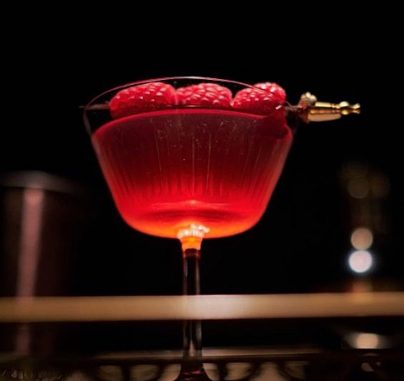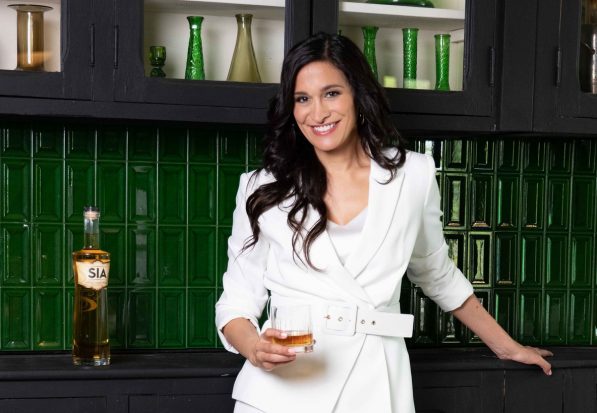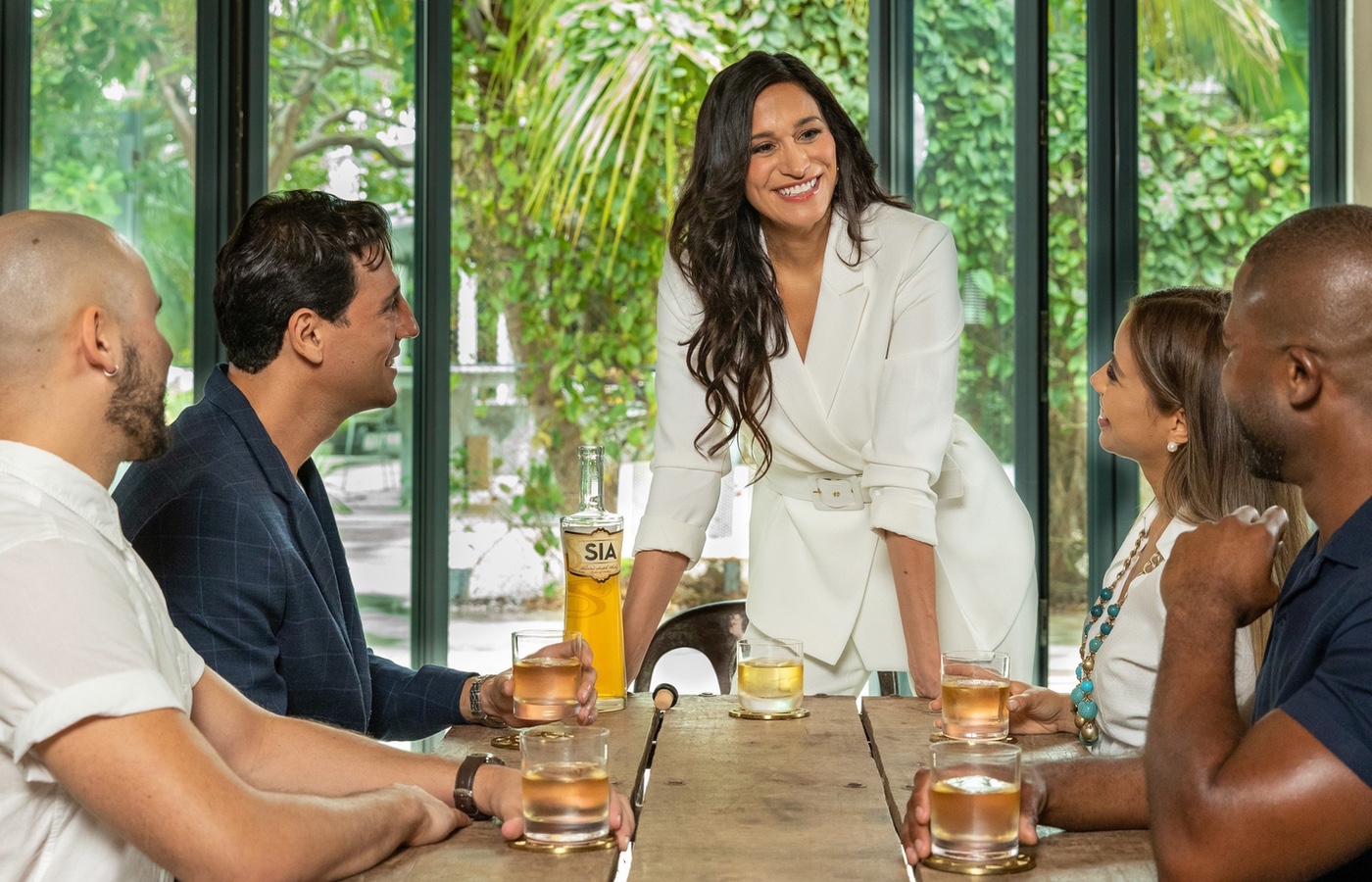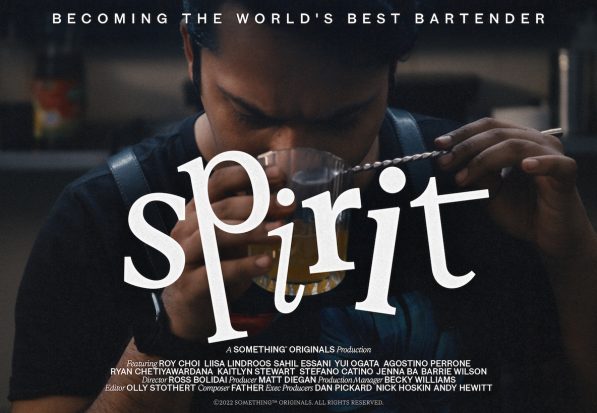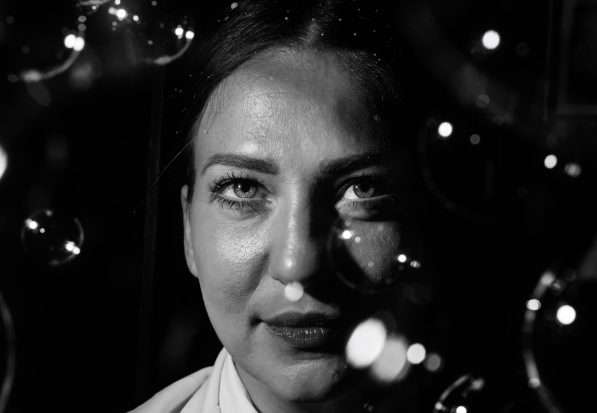Setting up a new business, especially in the spirits industry, takes creativity, inspiration, and hard work, but more importantly, it takes networks and money.
In the US in particular, multicultural entrepreneurs have reportedly only received a 2% share of venture capital annually over the past decade.
In an attempt to help bridge that gap, SIA Scotch Whisky has partnered with activist, actor, producer, Wilmer Valderrama, and online business mentoring group Hello Alice to launch the Entrepreneurial Spirit Fund by SIA Scotch.
We talked to SIA’s founder, Carin Luna-Ostaseski about the grant and how it aims to change convention while inspiring others to achieve the unexpected.
For more information, go to siascotchfund.helloalice.com
Interviewer:
Setting up a new business, especially in the spirits industry, takes creativity, inspiration, and hard work, but more importantly, it takes networks and money.
In the US in particular, multicultural entrepreneurs have reportedly only received 2% share of venture capital annually over the past decade.
In an attempt to help bridge that gap, SIA Scotch Whisky has partnered with activist, actor, producer, Wilmer Valderrama, and online business mentoring group Hello Alice to launch the Entrepreneurial Spirit Fund by SIA Scotch.
We talked to SIA's founder, Carin Luna-Ostaseski about the grant and how it aims to change convention while inspiring others to achieve the unexpected.
Thank you for joining us, Carin.
Carin:
Thank you so much for having me.
Interviewer:
Now, you've built a successful spirit business from the ground up. Why was it important to you to set this grant up?
Carin:
Oh, thank you for asking. I think when it comes down to it, I'm an outsider. So I built a scotch whisky brand while living in the United States without coming from the industry. I'm the daughter of Cuban immigrants. I funded SIA on Kickstarter from friends and family and strangers all over the world, before crowdfunding was even a thing. And the success of it, the 96 points, the double gold medal, the impact that we've had on small business owners through our givebacks has made it all really meaningful to me.
And to show that there's room for outsiders. we've thankfully been embraced by the industry and by whisky enthusiasts, new and experienced alike. So helping others, it's everything to me. From the first day of my business eight years ago, on the last day of every year, I take a look at my sales and I figure out how much of a percentage I can give to different organisations that help entrepreneurs start and run their own businesses.
And it started out small. And as my business grew over the years, we've donated to La Cocina, which is a small food business incubator program in San Francisco to Springboard Enterprises, the Renaissance Center, Tory Burch Foundation, Women's Economic Ventures, a New America Community Corporation, the Soul Sisters Leadership Collective and SheEO.
My previous career, it spanned tech start-ups, and with my recent background now in CPG and retail and food and beverage industry. I also like to give my time and expertise as a mentor. So I help out groups such as SKU, which is a CPG food accelerator program. And I also help out other entrepreneur accelerators, like All Raise, Female Founders Collective and Digital Undivided, which is a group that supports Latinas and African American women in tech.
Interviewer:
So really entrepreneurs and giving back have been in your DNA for quite a while.
Carin:
Absolutely. Yeah. It's so important for me to be able to kind of pay it forward and bring that cycle full circle.
Interviewer:
Explain how difficult it was for you to actually set the grant up, to establish it.
Carin:
Yeah. So we were actually set to launch the program last year in April, and then, as you know, the whole world shut down in an instant.
So at the time I was really sad and disheartened because I'd put so much time and energy and focus into the creation of this program. And now that we've launched it officially, it's definitely coming at a time when I think more small businesses need more help than ever. So coming at a time when we can help small businesses by frequenting their businesses, either in-person or online, we can be really intentional about how we shop. We can spread awareness about means of support like this program and other grant programs.
And most of the time, the businesses that need the support, they find out about these programs way too late in the game, because they're just too busy trying to keep the lights on and working on their businesses to seek out the time or the help to apply for grants like this.
I searched for months to find the right partner for the program and I was thrilled to partner with Hello Alice. It's a free online platform. They've got almost half a million small businesses on the platform, and it's a great resource for entrepreneurs to find resources and funding opportunities and a sense of community.
I believe the Entrepreneurial Spirit Fund is unique because it's inspired by my own personal journey as a Hispanic entrepreneur, trying to secure capital and funding. I spent years exploring scotch’s richness and complexities and overcoming adversity. And I founded SIA on a Kickstarter campaign in 2013. So I get the ups and downs of being a minority business owner firsthand. My hope is that that my journey and my story of perseverance and adversity can help other minority entrepreneurs relate and get inspiration from my story.
Another distinction I think is, in addition to the $10,000 in grant funding for the 25 recipients, they're also going to be receiving personal mentorship from me. So yeah, I think that my personal perspective, it, not only as an entrepreneur of colour, but also as a woman in the industry, can definitely help to offer advice and support and a different perspective that maybe some other programs can't do.
Interviewer:
Do you think that we are still a fair way from seeing a level playing field?
Carin:
I do. Yeah. I think, again, from my own personal perspective, feeling like a little bit of an outsider, but with a fresh perspective, there were many times where I'd sit at distributor pitch meetings or sales pitch meetings, or even investor meetings trying to raise money from people who don't look like me, who haven't had the same life experiences as me. They don't really understand how difficult it is to even just get a seat at that table and have a voice.
So, yeah. I think that the grant program, it's coming from a deep desire for me to help give back and pay it forward. And I think there's a phrase of sending the elevator back down and help give other small business owners the smallest leg up. The stats tell us that in the last 10 years, multicultural entrepreneurs, they represent over 50% of new businesses and have created 4.7 million new jobs, but we're still very still excluded in funding. The stat that is published a lot is that it's only a 2% share of venture capital annually over the last decade, but that's not even counting, not even the companies that get to get venture capital. These small businesses aren't venture businesses. So I think more than ever, it's really important right now to recognise the impact that multicultural small businesses have and help support them.
Interviewer:
Talk us through some of the challenges that you faced and explain how a grant like this might've been helpful on your journey.
Carin:
Thank you. Yeah, I think I've kind of done it all. I had a job before this, 17 years as a graphic designer. So I think saving money for my business and launching it was a huge obstacle. I saved up as much money as I could on the side. I did moonlighting. As a freelance designer, I did logos and websites and brochures, anything that I could do to help get some extra money together to start my business. I also took out a home equity line of credit on my home. I then eventually ran a Kickstarter campaign at a time when people didn't really know what that was. And then I brought on some partners and they put in money as equity. And then I ended up raising almost $700,000 as well in seed capital in the form of SAFEs.
So I think one of the bits of advice I do like to offer is bringing on the partners was really smart money. They served as my bank whenever I needed to create inventory. So rather than having to go out and give up more equity to make more product, they served as my interest-free bank. And so I think that that's a really helpful piece of advice for other entrepreneurs.
And then, I think programs like this, grant programs are really helpful because you don't have to give up a piece of your business to keep it going. It's just a little bit of the time-consuming to be able to find and apply and win these programs. But I think it's really important to keep your business surviving and keep a meaningful ownership stake in your business as well.
Interviewer:
Compared to other industries, do you feel that the spirits business in particular has been plagued by an unconscious bias?
Carin:
So I think I can't really speak to all industries except maybe tech since that was a world that I was in for a long time. I'd say that they are kind of similar in terms of an uneven split when it comes to resources and capital, but I don't think it's as much as a conscious bias as I think it's just historic. So I think what's great right now is that many companies, as you mentioned, are recognising this. They're taking efforts to really level that playing field. I think what's important is that these efforts are going to help more closely represent the consumers of the products. And that can only be good for every industry that's doing this kind of work.
Interviewer:
The grant that you have established, is that solely for people in the spirits business or are other hospitality based businesses able to apply?
Carin:
So we are open to all industries, not necessarily alcohol businesses. We do have a few limitations in the kinds of businesses. So for example, it can't be a nonprofit. It can't be a charity or a political fundraising campaign. We do have a few others that are listed in our terms and conditions page. The one caveat is that, in terms of hospitality, we do have a limitation that we can't have a business recipient that has a retail or wholesale liquor license. Because as you know, in the United States, we've got this three tier system that won't allow me personally, or as a brand, to promote these businesses specifically. And I do hope to promote all the grant recipients as much as I could to the best of my ability. So otherwise the grant program is totally industry agnostic. And I welcome spirit businesses of other kinds of businesses to apply.
Interviewer:
What conditions do businesses need to meet to be eligible?
Carin:
So the business has to be owned 51% or more by a person that self identifies as a person of colour or multicultural. They need to operate in at least one of the following US states where we operate, which is California, Florida, Illinois, Nevada, New York, and/or Texas. And the business can't be generating more than $1 million in annual gross revenue. We're really looking for small businesses. And then the business owner needs to be at least 25 years of age and be a citizen or legal, permanent resident of the US.
Interviewer:
And are there any conditions on how the grant money can be used?
Carin:
So I'll use the legalese here. The grant is awarded based on the understanding that the sponsor, that's SIA, and the administrator is Hello Alice, that it will be used solely to advance the development of the business.
Interviewer:
You've spoken about the fact that getting funding in the past can be difficult for multicultural businesses. Do you believe that that is actually changing though?
Carin:
Yeah, yeah, absolutely. So I think when I was starting out, there weren't a lot of these resources and now there's so many out there. As I said, Hello Alice is a great resource to begin. Also just doing a simple search for minority grants, depending on your ethnicity or if you're woman owned. I think also it's really important to get your business certified. So getting your business certified as woman owned or minority owned, there's different councils like WBENC for the Women's Business Enterprise National Council, or getting your business certified as a minority business owner. And that can be through the National Minority Supplier Development Council as well. And so once you sign up for these, you'll get a ton of resources about grant programs that are specific to you and your business.
Interviewer:
While money, and obviously cashflow, are of course important in helping a new business, how important is mentoring?
Carin:
I'd say it's maybe equally important. So it's one thing to know how to raise the money, but it's also really important to know how to spend it wisely so that you're advancing your business goals. And I think that's where mentoring comes into play. So having someone, either from your industry, or maybe a parallel industry, that's made those mistakes before. They can help you know how to avoid them.
It's also good, I think, to have a variety of mentors from different areas of expertise. So maybe there's someone from sales and marketing, or maybe someone from finance. And also different points of success. So getting yourself a mentor that's had a lot of proven success further down the line. That's already walked your path, but also maybe some of it's not so far in advance, like someone just a little further, so you can help kind of track your path. And I think coming from the place of having had mentors and being a mentor, I think it's really important to have this safe space where you've got this no judgment zone and somebody that can help hold you accountable for just doing what you say that you're going to do.
Interviewer:
And I suppose also someone to throw ideas past and just give you a bit of direction when you hit a fork in the road, so to speak.
Carin:
Yeah. I think the journey of an entrepreneur, it's so lonely. Especially if you're just going at it alone and you don't have a business partner, having a mentor can help satisfy some of those gaps and those needs for sure.
Interviewer:
Now, how many businesses are you looking to actually help with the grant?
Carin:
So I'm proud to say we're going to be supporting 25 small business owners of colour. It's a $10,000 a piece grant, and we are taking applications now through August 10th at siascotchfund.helloalice.com. And we will be announcing the recipients the weeks between September 2nd and 14th. And then we'll be giving the funds out to the recipients on October 8th.
Interviewer:
And is thing going to be an ongoing thing? So is this going to be annual?
Carin:
Yeah, it will be an annual program.
Interviewer:
You've talked a fair amount about Hello Alice, can you give us a little bit more information about them?
Carin:
Yeah. So it's a free online platform specifically created to help small businesses launch and grow. There are almost half a million businesses on the platform already, and I believe that makes it the largest network of small business owners in the country. They also partner with enterprises and government agencies and institutions that are giving grant programs. It's a Latina owned company founded by two women, Carolyn Rodz and Elizabeth Gore. And yeah. They provide access business for all. People of colour, men, women, veterans, anyone with the entrepreneurial spirit.
Interviewer:
With your grant, will there be an aspect of networking between the grant recipients?
Carin:
Yeah, definitely. So, as I mentioned, I mentor for a couple of different groups, and the ones that I've seen the most success in are the ones where there's relationships between the mentees. So I think it's really important to not feel so alone. And I really, I'm most proud when I see the entrepreneurs and founders just opening up and sharing resources and fears and success and support.
Interviewer:
Is there going to be any sort of educational aspect to the grant?
Carin:
Yes. So in addition to all the tools and resources on Hello Alice, I've personally found so many resources through the years in business, so I'm happy to open up my connections as well. And then I'm also personally donating to the 25 recipients a one-year membership to a group called the Entreprenista League, which is a networking community where you can find other mentors, potential investors, prospects, co-founders, or employees.
Interviewer:
Do you think that the rise of more multicultural spirit businesses will change the face of the industry?
Carin:
I do. I believe that it's going to help other small businesses support other ancillary businesses that are founded by businesses that look like them. So minority women owned suppliers, agencies, distributors, investors, and definitely consumers.
Interviewer:
Down the track, what do you hope to be the lasting impact of the grant?
Carin:
Oh, so I think my big hope and dream is just to see the impact that these businesses have and that maybe one day they'll continue this cycle of giving back and in turn help other small business owners succeed too.
Interviewer:
Now, obviously, if people want more information on the grant, they can go to siascotchfund.helloalice.com. Can they connect with you on social at all?
Carin:
Yeah. So our Instagram is SIA Scotch Whisky, and my personal email address is carin@siascotch.com. So feel free to reach out with any questions, or as you said, just go to the page for more information on the program.
Interviewer:
Excellent. All right, well look, thank you so much for your time today.
Carin:
Thank you so much. I really appreciate it. Yeah. I loved your questions. They were wonderful.
Interviewer:
Thank you.
